Speakers Thursday 2 February
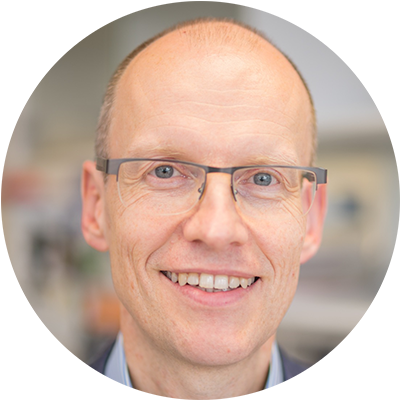
Ralf Adams
Director at the Max Planck Institute for Molecular Biomedicine and professor at the University of Münster, Germany
After a PhD with distinction in 1996 from the Johann Wolfgang Goethe University in Frankfurt and a successful period of postdoctoral research at the European Molecular Biology Laboratory (EMBL) in Heidelberg, Ralf Adams moved to London in 2000 and established his independent laboratory at the Cancer Research UK London Research Institute. In 2007, he became director at the Max Planck Institute for Molecular Biomedicine and professor at the University of Münster, Germany. The main research interests of Ralf Adams are vascular biology, the regulation of blood vessel growth, the organ-specific specialization of vascular cells, and the crosstalk between the vasculature and other cell types. A key discovery by his team is the identification of specialized vessel subpopulations in bone with critical functional roles in skeletal development, homeostasis, age-related bone loss, and osteoporosis. His research uses advanced mouse genetics and confocal/two-photon microscopy together with a range of cell biology approaches. Ralf Adams has received the Otto Hahn Medal of the Max Planck Society, the Werner Risau Memorial Award, the Malpighi Award of the European Society for Microcirculation, and the Feldberg Prize 2021.
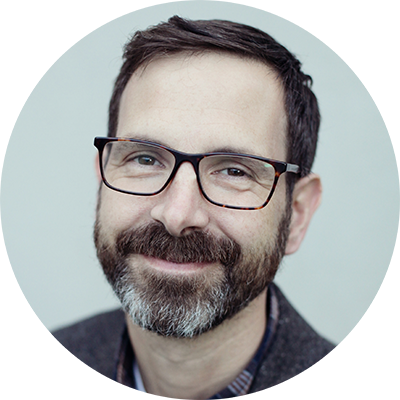
Jason Fish
Associate professor at the Toronto General Research Institute and the University of Toronto, Canada
Jason Fish focuses in his research on deciphering how endothelial cells integrate signals in their environment to control cellular behavior during heath and disease. He performed his PhD training in the laboratory of Dr. Philip Marsden (University of Toronto) on endothelial cell biology, more specifically on transcriptional control of endothelial genes in response to diverse stimuli including hypoxia and shear stress. During his postdoctoral training in the laboratory of Dr. Deepak Srivastava (Gladstone Institute of Cardiovascular Disease, UC San Francisco, 2006-2010), while studying the mechanisms of endothelial cell signaling pathways, he identified microRNAs that control components of signal transduction pathways to regulate angiogenesis. Since establishing his independent laboratory at the Toronto General Hospital Research Institute and the University of Toronto in 2010, he has continued to investigate how cellular signaling and downstream transcriptional pathways regulate endothelial cell behavior. His lab has identified microRNAs and long non-coding RNAs that control inflammatory signaling pathways as well as transcriptional pathways that regulate developmental vascular growth and integrity. They also discovered and modeled somatic mutations in the endothelium that cause brain arteriovenous malformations. The lab further developed expertise in microRNA and extracellular vesicle biomarkers of disease.

Rong Wang
Professor in the Department of Surgery at the University of California San Francisco (UCSF), USA
Dr. Wang is a Professor and the Mildred V. Strouss Endowed Chair in the Department of Surgery at the University of California San Francisco (UCSF). She is also a member of UCSF Cardiovascular Research Institute, Institute of Regenerative Medicine, Biomedical Sciences Graduate Program, Developmental Stem Cell Biology Graduate Program, and Graduate Group in Bioengineering. She completed her PhD in Angiogenesis from the University of North Carolina at Chapel Hill and Postdoctoral Fellowship in Cancer Biology at UCSF under the tutelage of Dr. Victoria Bautch and Dr. J Michael Bishop, Nobel laureate; respectively. She delivered the inaugural San Francisco State Graduate Division Commencement Address. Research in her lab has been focused on the molecular programming and reprogramming of arterial-venous specification in development and diseases, concentrating on the Notch, ephrin-B2, BMP pathways underlying these processes. Her team takes crossdisciplinary approches, combining sophisticated mouse genetics, to delete or express genes in a cell lineage-specific and temporally controllable fashion, with cutting-edge imaging capabilities, including two-photon microscopy, to obtain real-time longitudinal data in living animals. These efforts have shone light on the molecular processes underlying arterial-venous specification and arteriovenous malformation as well as the development of novel therapeutic options for treating human diseases.
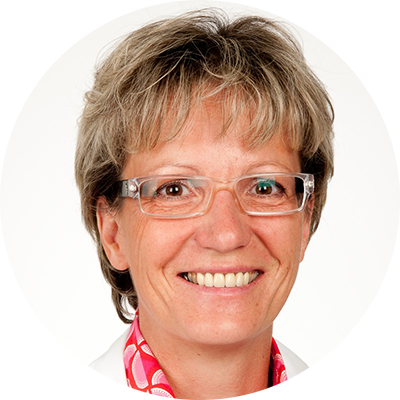
Laurence Boon
Coordinator of the Centre for Vascular Malformations, Division of Plastic Surgery, Cliniques universitaires Saint-Luc, Brussels, Belgium
Prof LM Boon became a Plastic Surgeon in 1996 and obtained her PhD in 2003 at the Faculty of Medicine in UCL, Brussels. She is the Coordinator of the Multidisciplinary Vascular Anomaly Centre (VAC), Saint Luc university Hospital, Brussels, which celebrate its 30th anniversary in 2021. Through seminal discoveries, her team actively 1) moved the discipline of confusing diagnoses, to a field with stratified diseases, 2) generated the first venous malformation animal model, and 3) demonstrated preclinically and clinically efficacy of the first molecular therapy for slow-flow vascular anomalies. She has several high impact publications, reviews, and chapters on vascular anomalies in major medical reference books, especially in dermatology and genetics. She has been an invited speaker at numerous major scientific meetings. In 2013, she shared with Prof. M. Vikkula the INBEV-Baillet Latour Clinical Prize. She was Chair of the ISSVA Scientific Committee (2004-2008) followed by the status of President of the ISSVA (2008-18) and she is an active Member of the Royal Belgian Academy of Medicine. Since 2016, she is chairing with Prof Vikkula the VASCA working group of the European Reference Networking on Vascular Anomalies (VASCern). She is currently involved in several research projects aimed at elucidating the pathophysiology of these anomalies as well as in phase I, II and III clinical trials of new medications.
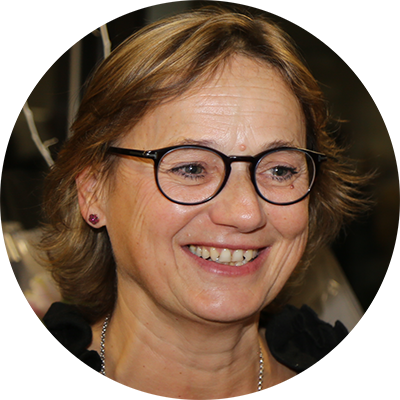
Sabine Bailly
Group leader at the Biology of Cancer & Infection laboratory at CEA/INSERM, Grenoble Alpes University, France
Sabine Bailly heads the group BMP in angiogenesis and lymph-angiogenesis (BAL) at CEA in Grenoble. Her group has discovered the high affinity ligands for the endothelial receptors ALK1 and endoglin, which are BMP9 and BMP10. Mutations in this signaling pathway are involved in two rare vascular diseases, the Rendu-Osler syndrome, also known as HHT and pulmonary arterial hypertension. Since her pioneering work, this signaling pathway is now clearly identified as a key pathway for vascular remodeling. Her group is a leader group in the field of BMP signaling and vascular homeostasis and HHT.

Lars Jakobsson
Associate Professor of vascular biology at the Department of Medical Biochemistry and Biophysics (MBB), Karolinska Institutet (KI), Stockholm, Sweden.
Lars Jakobsson acquired his PhD in molecular medicine in the lab of Lena Claesson-Welsh at Uppsala University, Sweden, in 2007. He then joined the lab of Holger Gerhardt at London Research Institute – Cancer Research UK, as a postdoctoral EMBO fellow. In 2010 he returned to Sweden and was recruited to the lab of Christer Betsholtz, and shortly thereafter acquired a position as assistant professor and started an independent lab. In 2017, he was appointed Associate Professor at MBB, KI, where he is group leader and teacher in medical school. Lars Jakobsson has made important contributions to the understanding of angiogenesis, including regulatory functions of extracellular matrix – growth factor interactions, characterisation of endothelial cell behaviour in sprouting angiogenesis and the impact of differential gene expression thereon. His recent work sheds new light on mechanisms of vascular malformation, with respect to cell signalling and shear stress-instructed cell behaviour. In addition, the Jakobsson lab has described mechanisms and functional relevance of smooth muscle cell recruitment to the lymphatic vasculature. His work has direct implication on vascular-related diseases such as cancer, stroke, diabetes complications and vascular anomalies.
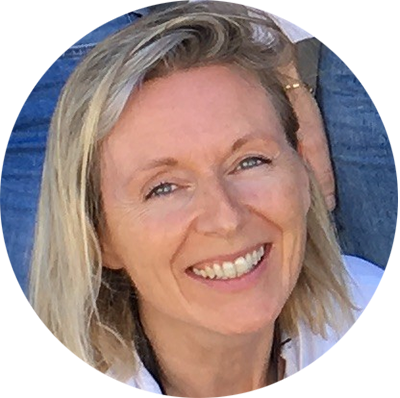
Sophie Dupuis-Girod
Paediatrician and geneticist at Centre Hospitalier Universitaire de Lyon, France
Dr. Sophie Dupuis-Girod holds an M.D. of the René Descartes University, Paris V, and has specialized in peadiatrics and genetics. She is hospital practitioner at the department of Genetics and CRMR Rendu-Osler Disease at Centre Hospitalier Universitaire (CHU) de Lyon. She is also affiliated to the INSERM U1292 – Biology and biotechnologies for health research team of CHU de Lyon. She is coordinator of the “Rendu-Osler Disease” Reference Center in Lyon and chair of the HHT group of the European Network for Rare Diseases (VASCERN).